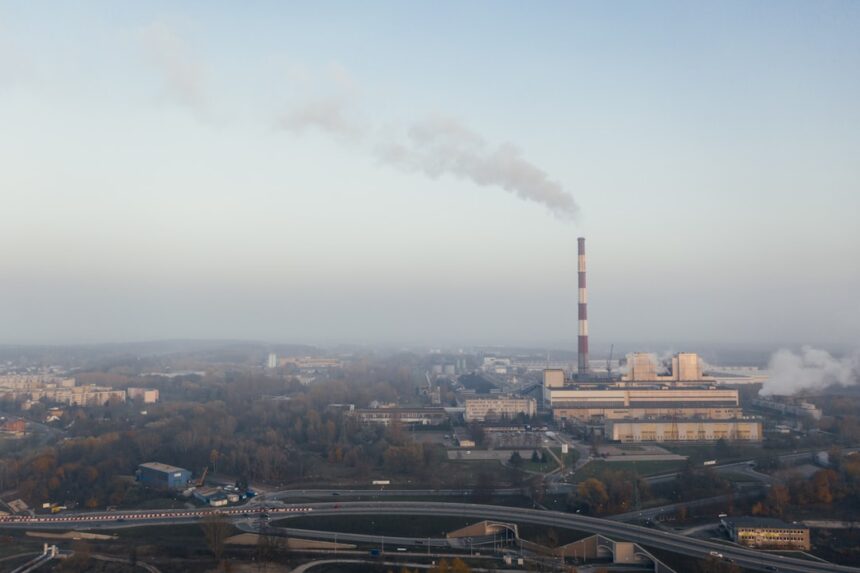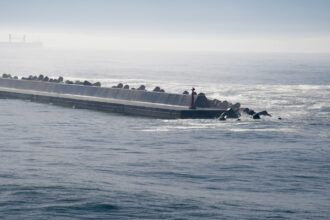European energy dependency has emerged as a critical issue in the geopolitical landscape of the 21st century. The continent’s reliance on external sources for its energy needs has raised concerns about security, economic stability, and political autonomy. As Europe grapples with the dual challenges of climate change and energy transition, the question of how to secure a reliable and sustainable energy supply has become increasingly pressing.
The intricate web of energy relationships that Europe has developed over decades, particularly with major suppliers like Russia, underscores the complexities of achieving energy independence while maintaining economic growth and environmental commitments. The dependency on imported energy sources, particularly fossil fuels, has made Europe vulnerable to external shocks and geopolitical tensions.
As Europe seeks to navigate its energy future, understanding the dynamics of its dependency on external suppliers is essential for formulating effective strategies that balance energy needs with geopolitical realities.
Key Takeaways
- European energy dependency on Russia poses significant political implications and economic control in the region.
- Efforts to diversify energy sources in Europe are crucial for energy security and geopolitical considerations.
- Russia’s dominance in European energy markets gives it significant influence in Russia-Europe relations.
- European energy policies aimed at diversification have prompted responses from Russia, impacting the dynamics of energy relations.
- Balancing European energy needs with geopolitical realities is essential for future scenarios of energy independence.
Russia’s Dominance in European Energy Markets
Russia has long been a dominant player in European energy markets, supplying a significant portion of the continent’s natural gas and oil. The vast reserves of fossil fuels located in Siberia and the strategic infrastructure developed over decades have positioned Russia as a key supplier for many European nations. This dominance is not just a result of geographical proximity; it is also a product of historical ties and economic interdependence that have evolved since the Cold War era.
The construction of pipelines such as Nord Stream and Yamal-Europe has further solidified Russia’s role as a primary energy provider, creating a network that facilitates the flow of gas directly into European markets. The implications of this dominance are profound. For many European countries, particularly those in Central and Eastern Europe, Russian energy supplies are not only crucial for meeting domestic demand but also for ensuring economic stability.
However, this reliance comes with significant risks, as it exposes these nations to potential political leverage from Moscow. The intertwining of energy supply and political influence has led to a complex relationship where energy dependency can be both a source of economic benefit and a potential vulnerability.
Political Implications of European Energy Dependence on Russia

The political implications of Europe’s energy dependence on Russia are multifaceted and far-reaching. On one hand, the reliance on Russian energy creates a sense of interdependence that can foster cooperation between nations. However, it also raises concerns about sovereignty and the ability of European countries to make independent decisions without being influenced by Russian interests.
This dynamic has been particularly evident in times of geopolitical tension, where energy supply disruptions have been used as tools of coercion. Moreover, the political landscape within Europe is often shaped by differing levels of dependency among member states. Countries like Germany, which have invested heavily in Russian energy infrastructure, may find themselves at odds with Eastern European nations that advocate for greater energy diversification and independence.
This divergence can lead to internal divisions within the European Union, complicating collective efforts to address energy security and foreign policy challenges related to Russia.
Economic Control and Influence in European Energy Markets
| Country | Energy Consumption (Mtoe) | Energy Import Dependency (%) | Market Share of Largest Energy Company (%) |
|---|---|---|---|
| Germany | 319.4 | 63.8 | 43.1 |
| France | 258.9 | 48.1 | 40.2 |
| Italy | 163.3 | 77.4 | 45.6 |
| United Kingdom | 221.7 | 36.2 | 38.6 |
The economic control that Russia exerts over European energy markets is significant and cannot be overlooked. By leveraging its vast natural gas reserves, Russia has been able to influence pricing structures and supply agreements across the continent. This economic power translates into political leverage, allowing Moscow to shape policies and decisions in various European capitals.
The reliance on Russian energy not only affects market dynamics but also impacts investment decisions, infrastructure development, and technological advancements within the European energy sector.
The revenues generated from energy exports contribute significantly to the Russian economy, providing funding for various state initiatives and military expenditures.
This financial dependency creates a cycle where European nations are not only reliant on Russian energy but also inadvertently support the very regime that may pose geopolitical challenges to their interests.
Energy Security and Geopolitical Considerations
Energy security has become a paramount concern for European nations as they navigate the complexities of their dependence on Russian supplies. The geopolitical landscape is fraught with uncertainties, including potential conflicts, sanctions, and shifts in global energy markets. As Europe seeks to ensure a stable and secure energy supply, it must consider not only the immediate implications of its dependency but also the long-term geopolitical ramifications.
The concept of energy security encompasses more than just access to resources; it involves diversifying supply routes, investing in renewable technologies, and fostering regional cooperation. The geopolitical considerations surrounding energy security are further complicated by external actors such as the United States and China, who have their own interests in shaping Europe’s energy landscape. As Europe strives for greater autonomy in its energy policy, it must navigate these complex relationships while ensuring that its security needs are met.
European Efforts to Diversify Energy Sources

In response to the challenges posed by its dependency on Russian energy, Europe has initiated various efforts to diversify its energy sources. These initiatives aim to reduce reliance on any single supplier while promoting renewable energy technologies and enhancing regional cooperation. The European Union has set ambitious targets for increasing the share of renewables in its energy mix, recognizing that transitioning to cleaner sources is essential for both environmental sustainability and energy security.
One notable effort is the development of alternative pipeline projects that connect Europe with other suppliers, such as the Southern Gas Corridor, which aims to bring gas from Azerbaijan through Turkey to Europe. Additionally, investments in liquefied natural gas (LNG) terminals have expanded Europe’s ability to import gas from diverse sources around the globe. These diversification strategies not only enhance energy security but also contribute to reducing greenhouse gas emissions, aligning with Europe’s broader climate goals.
Impact of European Energy Policies on Russia
European energy policies aimed at diversification have significant implications for Russia’s position in the global energy market. As Europe seeks to reduce its dependence on Russian supplies, Moscow faces potential economic repercussions that could undermine its influence over the continent. The shift towards renewable energy sources and increased investment in alternative suppliers may lead to decreased demand for Russian fossil fuels, impacting revenue streams that are vital for the Russian economy.
Moreover, as European nations implement stricter regulations on carbon emissions and promote sustainability initiatives, Russia may find itself at a crossroads. The need to adapt to changing market dynamics could compel Russia to invest in cleaner technologies or seek new markets beyond Europe. However, such transitions may be challenging given the country’s historical reliance on fossil fuel exports and the existing infrastructure designed for traditional energy sources.
Russia’s Response to European Energy Diversification Efforts
In response to Europe’s diversification efforts, Russia has adopted a multifaceted strategy aimed at maintaining its influence in the region while exploring new markets for its energy exports. One approach has been to strengthen ties with non-European countries that are emerging as alternative markets for Russian oil and gas. By expanding its reach into Asia, particularly China and India, Russia seeks to offset potential losses from reduced demand in Europe.
Additionally, Russia has invested in enhancing its domestic production capabilities and developing new pipeline projects that connect it with alternative markets. The Power of Siberia pipeline, which transports natural gas to China, exemplifies this strategy of diversifying export routes while simultaneously reducing reliance on European markets. However, these efforts come with their own set of challenges, including geopolitical tensions with neighboring countries and competition from other suppliers.
The Role of Energy in Russia-Europe Relations
Energy plays a pivotal role in shaping the relationship between Russia and Europe, serving as both a bridge for cooperation and a source of contention. The interdependence created by energy trade has fostered economic ties that benefit both parties; however, it has also led to vulnerabilities that can be exploited during times of political strife. The reliance on Russian energy supplies has often placed European nations in precarious positions when navigating their foreign policy agendas.
As geopolitical tensions rise, particularly in light of recent conflicts involving Russia, the role of energy becomes even more pronounced. Sanctions imposed on Russia have prompted discussions within Europe about reducing dependency on Russian supplies altogether. This evolving dynamic highlights how energy can serve as both an instrument of collaboration and a potential flashpoint for conflict within international relations.
Future Scenarios for European Energy Independence
Looking ahead, several scenarios could shape Europe’s quest for energy independence from Russia. One possibility involves a successful transition towards renewable energy sources that significantly reduce reliance on fossil fuels altogether. If Europe can effectively harness wind, solar, and other renewable technologies while enhancing grid infrastructure, it may achieve greater self-sufficiency in meeting its energy needs.
Alternatively, geopolitical tensions could escalate further, prompting Europe to accelerate its diversification efforts even more aggressively. In this scenario, investments in alternative suppliers and technologies would take precedence over traditional partnerships with Russia. However, this path may come with challenges related to market volatility and potential disruptions during the transition period.
Balancing European Energy Needs and Geopolitical Realities
In conclusion, Europe’s journey towards achieving energy independence is fraught with complexities that intertwine economic interests with geopolitical realities. The continent’s historical dependence on Russian energy supplies presents both opportunities for collaboration and risks associated with vulnerability. As Europe navigates this intricate landscape, it must balance its immediate energy needs with long-term goals for sustainability and security.
The path forward will require innovative solutions that embrace diversification while fostering cooperation among member states. By investing in renewable technologies and exploring new partnerships beyond traditional suppliers, Europe can work towards a more resilient energy future that mitigates risks associated with dependency on any single source. Ultimately, achieving true energy independence will necessitate not only strategic planning but also a commitment to addressing the broader geopolitical implications that shape Europe’s relationship with Russia and other global players in the energy arena.
In the ongoing geopolitical landscape, Russia’s strategic targeting of European energy infrastructure has been a focal point of international discourse. This tactic not only serves as a means of exerting political pressure but also highlights the vulnerabilities within Europe’s energy supply chain. For a deeper understanding of the broader implications of such actions, you might find the article on




